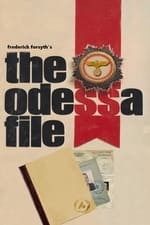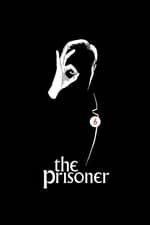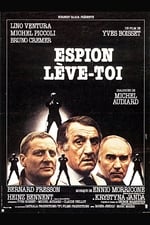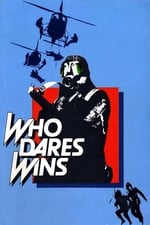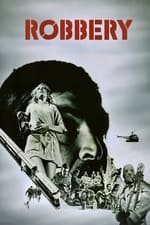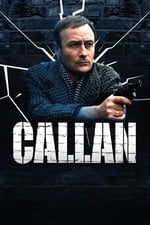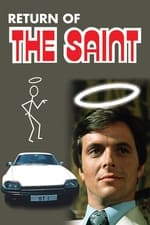个人信息
代表作 编剧
知名演职员 9
性别 男
生日 1929 年 08 月 29 日
去世 1987 年 01 月 15 日 (57 岁)
出生地 Berlin, Germany
又名
- -
完成度
63
离完成是那么近,却又那么远。
登录以报告问题
个人简介
George Markstein (29 August 1926 – 15 January 1987) was a British journalist and writer of thrillers and teleplays. He was the script editor of the British series The Prisoner for the first thirteen episodes, and appeared briefly in its title sequence. Markstein also wrote for or story-edited other television series, specialising in espionage stories, and jointly ran a successful literary agency for screenwriters.
In 1926, according to his friend Sidney Allinson, writing in "George Markstein and The Prisoner", Markstein was born in Berlin, Germany, but emigrated with his Jewish family to England with the rise of Nazism. It is likely that he lived in the United States during his youth, then moved to Britain. Markstein worked as a newspaper reporter for the Southport Guardian of Southport England in 1947. Markstein later became a journalist for the American military tabloid, the Overseas Weekly. Due to its scandal-driven content, the paper's U.S. G.I. readership referred to the paper as the Over Sexed Weekly. The masthead of the newspaper lists Markstein as head of the London desk.
He moved into television, first on the factual series This Week, before acting as story consultant and contributing to multiple episodes of ITC's Court Martial (1966), and then joining Danger Man as story consultant for the last black-and-white episode (1966), then story editor for the two episodes which were made in colour (1967). Around this time he also wrote four episodes for Rediffusion's children's drama series Send Foster (1967), and worked on the script for Peter Yates's Robbery (1967), a fictionalised feature film based on the 1963 Great Train Robbery.
When Patrick McGoohan announced his decision to leave Danger Man, Markstein edited the basic ideas that McGoohan had worked on since 1962 that became The Prisoner series. Together with producer David Tomblin and the star McGoohan (uncredited), Markstein co-wrote the first story "Arrival," and then settled in as script editor for the series. He later described the job of story editor as "the key man in any series, he is the man in whose hands is the ethos of the series, the spirit of the series, and it is his job to cast the writers and the authors the way a director casts the actors and the stars".
Markstein makes a fleeting appearance at the start of almost every episode of The Prisoner – as the balding, bespectacled 'man behind the desk', to whom McGoohan's character is seen angrily handing his letter of resignation; and played the same, non-speaking character in the episode "Many Happy Returns".
Markstein's view of the series was for a more-or-less conventional action/espionage story. However, as McGoohan controlled the series as Executive Producer and owner of Everyman Films, Markstein became increasingly dissatisfied as an employee and ultimately left the series after the conclusion of the initial block of thirteen episodes. A glimpse of Markstein's face remained in the opening credits, but it was without him that McGoohan took the series to its most surreal and existential levels in the final four episodes, and its bizarre conclusion. ...
Source: Article "George Markstein" from Wikipedia in English, licensed under CC-BY-SA 3.0.
George Markstein (29 August 1926 – 15 January 1987) was a British journalist and writer of thrillers and teleplays. He was the script editor of the British series The Prisoner for the first thirteen episodes, and appeared briefly in its title sequence. Markstein also wrote for or story-edited other television series, specialising in espionage stories, and jointly ran a successful literary agency for screenwriters.
In 1926, according to his friend Sidney Allinson, writing in "George Markstein and The Prisoner", Markstein was born in Berlin, Germany, but emigrated with his Jewish family to England with the rise of Nazism. It is likely that he lived in the United States during his youth, then moved to Britain. Markstein worked as a newspaper reporter for the Southport Guardian of Southport England in 1947. Markstein later became a journalist for the American military tabloid, the Overseas Weekly. Due to its scandal-driven content, the paper's U.S. G.I. readership referred to the paper as the Over Sexed Weekly. The masthead of the newspaper lists Markstein as head of the London desk.
He moved into television, first on the factual series This Week, before acting as story consultant and contributing to multiple episodes of ITC's Court Martial (1966), and then joining Danger Man as story consultant for the last black-and-white episode (1966), then story editor for the two episodes which were made in colour (1967). Around this time he also wrote four episodes for Rediffusion's children's drama series Send Foster (1967), and worked on the script for Peter Yates's Robbery (1967), a fictionalised feature film based on the 1963 Great Train Robbery.
When Patrick McGoohan announced his decision to leave Danger Man, Markstein edited the basic ideas that McGoohan had worked on since 1962 that became The Prisoner series. Together with producer David Tomblin and the star McGoohan (uncredited), Markstein co-wrote the first story "Arrival," and then settled in as script editor for the series. He later described the job of story editor as "the key man in any series, he is the man in whose hands is the ethos of the series, the spirit of the series, and it is his job to cast the writers and the authors the way a director casts the actors and the stars".
Markstein makes a fleeting appearance at the start of almost every episode of The Prisoner – as the balding, bespectacled 'man behind the desk', to whom McGoohan's character is seen angrily handing his letter of resignation; and played the same, non-speaking character in the episode "Many Happy Returns".
Markstein's view of the series was for a more-or-less conventional action/espionage story. However, as McGoohan controlled the series as Executive Producer and owner of Everyman Films, Markstein became increasingly dissatisfied as an employee and ultimately left the series after the conclusion of the initial block of thirteen episodes. A glimpse of Markstein's face remained in the opening credits, but it was without him that McGoohan took the series to its most surreal and existential levels in the final four episodes, and its bizarre conclusion. ...
Source: Article "George Markstein" from Wikipedia in English, licensed under CC-BY-SA 3.0.
编剧
|
|||||||||
|
|||||||||
|
|||||||||
|
|||||||||
|
|||||||||
|
创作
|
